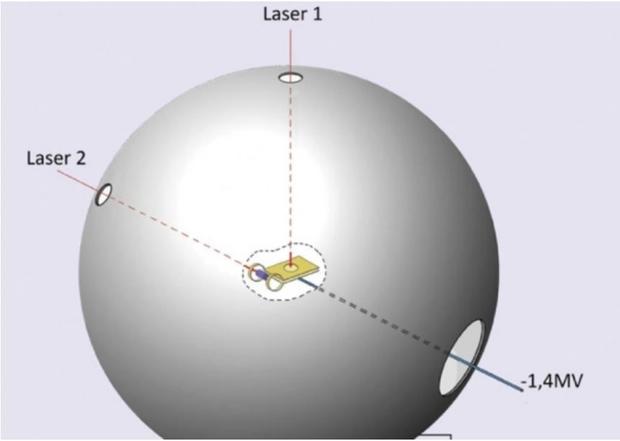Laser Driven Fusion

Written by Tim Lash, Focus Fusion Society Contributor.
LPPFusion has been working toward net energy gain from a hydrogen-boron fusion reactor. LPPFusion’s approach uses natural plasma instabilities to generate the high temperatures and densities necessary for fusion. They have already demonstrated world record ion temperatures in their device. New beryllium electrodes will allow them to tackle the needed densities. However, an Australian lead international team is approaching hydrogen-boron reactions driven by a completely different mechanism. Physicist Heinrich Hora plans to use picosecond laser pulses to initiate aneutronic fusion.
Two prior Focus Fusion Society posts have discussed laser driven fusion. This Australian team seems to be inspired by the promising outlook from this earlier research. In fact, the Australian team has already secured a patent on their design, and founded a startup company called HB11. Their intended approach is detailed in a paper published last month.
Two lasers provide the conditions for fusion. The first laser hits a capacitor coil device and generates a 4.5 kilotesla magnetic field that surrounds a cylindrical fuel target. A second laser beam coaxially aligned with the fuel cylinder fires to compress the fuel components and initiate fusion. The alpha particles produced will have their reaction energy harvested by direct electric energy conversion and from thermal effects on the reaction chamber. The short laser burst will contain tremendous power. The published article cites an existing 10 petawatt laser already in use. However, the HB11 team hopes that technology scales to 30 petawatts for their device. The laser power challenge, among several other hurdles, place this project on a ten year timeline to fusion power.
Currently, with so many fusion projects pursuing dirty deuterium-tritium reactions, it’s good to see another aneutronic effort enter the field. Aneutronic fusion efforts provide superior paths to green renewable energy. It’s one reason why the Focus Fusion Society so strongly supports the efforts of LPPFusion.